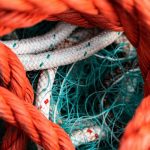European Union Council has approved a sustainable regulation for fishing in the Mediterranean that became fully effective on June 1. The impact of the measures — which include the use of larger mesh sizes in nets and ban the use of trawl nets close to the coast — will deal a severe economic blow to European fishermen in the Mediterranean, critics of the plan say. This regulation is said to affect not only Italy but Greece, France, Spain and Malta, which was adopted in 2006.
Italian fishermen have raise the alarm loudest where food lovers began to bemoan the possible loss of several dishes made with small sea catches. “Mixed fried fish will disappear from the table,” read one headline in the Turin daily newspaper La Stampa on Sunday.
Proponents of the Mediterranean Regulation, as it is known, say its implementation is crucial to the survival of the Mediterranean and its quickly declining fishing stocks. Oliver Drewes, a spokesman for Maria Damanaki, commissioner for Maritime Affairs and Fisheries, said that the philosophy is that there is clear scientific evidence that 54 percent of Mediterranean fish stocks are being overexploited and that this was a continuous situation that had to end.
Drewes also remarked that the protests brought out the tension between the “short-term and the long-term issues in the debate.” But the regulation was drafted as a “call for a long-term sustainable approach so that fisherman can fish in the future, and so that they can preserve their local cultures and traditions.” Italian fishermen do not challenge the impact that overfishing has had on the Mediterranean, but some are skeptical that the right measures have been adopted.








